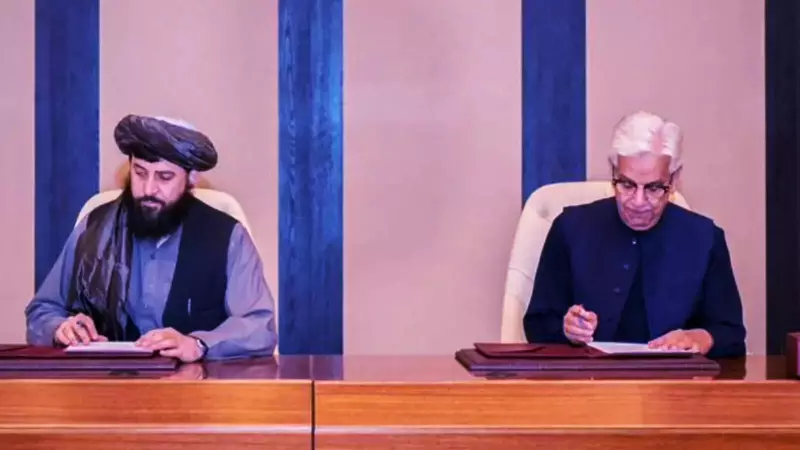
High-level diplomatic engagement between Pakistan and Afghanistan has ground to a halt following a series of violent confrontations along their shared border, dealing a significant blow to efforts aimed at easing long-standing tensions between the neighboring nations.
Border Violence Disrupts Dialogue
The carefully negotiated talks, which were showing promising signs of progress, have been suspended indefinitely after recent clashes at the critical Torkham border crossing resulted in multiple casualties. This strategic crossing point, vital for trade and movement between the two countries, has transformed into a flashpoint of conflict.
According to security sources, the situation escalated when Pakistani border forces attempted to construct a surveillance post in the contested area, triggering a forceful response from Afghan Taliban troops. The exchange of heavy weaponry continued for several hours, marking one of the most serious border incidents in recent months.
Casualties and Accusations Mount
The violent confrontation has resulted in confirmed fatalities on both sides, though the exact number remains disputed. Pakistani officials report the loss of at least one soldier with several others injured, while Afghan sources claim multiple casualties among their border security personnel.
Both nations have engaged in a war of words, with each side blaming the other for initiating hostilities. Pakistan maintains it was exercising its sovereign right to strengthen border security, while Afghanistan's Taliban-led government has condemned what it describes as "unprovoked aggression" and violation of territorial understanding.
Regional Implications and Future Prospects
The breakdown in talks carries significant implications for regional security and counter-terrorism cooperation. Both countries have historically accused each other of providing safe havens to militant groups operating across the porous border region.
International observers express concern that the stalled dialogue could lead to:
- Increased cross-border skirmishes and military posturing
- Disruption of vital trade routes affecting both economies
- Setbacks in coordinated counter-terrorism efforts
- Humanitarian challenges for border communities
Despite the current impasse, diplomatic channels remain technically open, with both sides indicating a willingness to return to negotiations once tensions de-escalate. However, no specific timeline has been proposed for resuming the crucial dialogue that many hoped would usher in a new era of Pakistan-Afghanistan relations.





